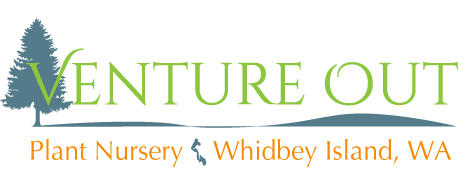Amending Soil
Soil is the key to plant growth. Turning poor soil into healthy soil can be tedious, but your garden will benefit from the effort. Here are some tips on making better soil conditions for your plants.
Adjusting Your Soil pH – If your soil pH is off, we recommend adjusting it. If your soil pH is low, we suggest adding garden lime to raise the levels. If your soil pH is high, we recommend adding sulfur to lower the levels. Please add the lime or sulfur in stages so you don’t shock your plants. Adjusting pH can be a bit hazardous to an entire area, we suggest adjusting it only for specific plants at first. Also, adding acid (lime) to the soil is especially dangerous, so we suggest starting off by adding coffee grounds around the base of a plant, or acid-loving fertilizer to specific plants, like Rhododendrons and Blueberries. We would offer the same advice for using lime chips.
Adding Nutrients – Adding nutrients to your soil can be as simple as adding fertilizer. Synthetic or organic fertilizer can be added to amend your soil. Synthetic fertilizer contains minerals and chemicals and acts quickly. Organic fertilizers aren’t a quick fix. They release nutrients more slowly, over a period of time. Let’s talk about slow-release vs. quick-release fertilizers. Slow-release fertilizer is temperature dependent and slowly releases into the soil over several weeks, which will never burn your plant; whereas fast-release fertilizers are an immediate solution, but they could burn the plant if the wrong quantity is applied. A fertilizer bag also mentions NPK. N is Nitrogen – which is for producing new tissues. This especially helps produce foliage. But if too much Nitrogen is available, then the plant will produce more foliage than fruit or flowers, and it will have difficulty taking up other important nutrients. P is Phosphorous – which is mostly used for root growth. It’s also used by the plant to help set flower buds. K is Potassium – which is for overall plant health and disease resistance.
Organic Material – Blood meal and bone meal can also be used to amend soil. Blood meal can be used to add Nitrogen to the soil and bone meal can be used to add Phosphorous. Bark also adds organic matter to the soil, which will increase drainage and moisture retention. Partially composted bark is especially good for clay soils, which need extra drainage.
Compost – Manure is a cheaper form of fertilizer, but it will take more time to amend. Adding compost, which includes manure, to your soil can increase soil texture and nutrients. Compost is considered a soil conditioner because of the soil improvements it can make. Improved soil texture and nutrients enable plants to retain moisture, air, and nutrients. Compost helps improve all soil types.
Grass Clippings and Leaves – Grass clippings and leaves contain the Phosphorous, Nitrogen, and Potassium that will enrich your soil. Grass clippings can increase the amount of water your soil can retain. Fresh and dried grass clippings can be used in different instances. Fresh grass clippings are Nitrogen boosting and dried grass clippings are Carbon boosting. Dried leaves are also Carbon boosting.
Providing your plants with rich and nutritious soil amendments will help ensure you can enjoy strong, healthy plants for years to come. If you have any questions, please come by the Nursery. We’re here to help!
For details about some of the soil amendment and mulch products we carry and how to use them check out this video with Tobey Nelson!
